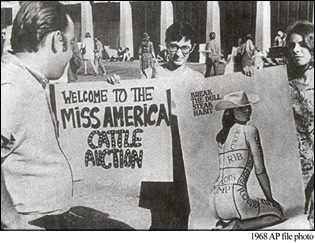
Everyone and everyone who blogs about libraries has been talking about Michael Gorman’s blazes on the Britannica blog, and about some weird public blog dissing at NASIG. Okaaay. I think it’s because it’s the same old debate, floated for the millionth time.
Coming from the sphere of archives and special collections (and having an extremely fluid professional identity), I should hope I’ve developed a decent immunity to pretense, snootiness, and off-putting quasi-intellectual b.s.. Residual fear of change, pedestal-putting for “scholarship”, xenophobia, lack of empathy with everyone else, check! I ain’t saying it’s the norm, because I can’t live with that as my reality, but the air gets kinda thick, and you can’t get angry every single time. To put this in terms of relevance, Karen Schneider says, “To millions of people, he represents librarianship”, but I’m not so sure. I lack the reverence to think that someone who in the past had held a widely acknowledged as disastrous term of office in an everything-and-nothing organization has much real weight to throw around.

But what bums me out so much about Gorman’s steez isn’t that he’s mean. Cause a good academic feud is a thing to behold! What gets me is that he has an opportunity to fulfill a role as a public intellectual talking about libraries, archives and information topics that are important to the public, and he blows it on a self-referential argument chasing some bygone ideal of what it means to have reasoned discourse (bypassing, like, the last 70 years of western thought!), and in a needlessly puffy and alienating style that would (in a perfect world) never pass muster in a “real” scholarly setting. That Scott Mclemee, danah boyd, and Tom Mann are in the Britannica bullpen for this makes me at least want to stay tuned in. (Does anyone else find the tagline “Where Ideas Matter” nonsensical and grounds for eye-rolling?)
As Jessamyn points out, information retrieval is becoming important in so many more aspects of life, not just in so-called scholarly pursuit. We are living a major social change! This is what I don’t get when folks tell librarians to step up the game, re: discourse. Information issues don’t need to be made important- they already are! The major struggle, I think, is clarifying this, to which knocking down everyone else doesn’t really help.

That’s the snag, it seems, in the “Column People” debacle, wherein a NASIG conference presenter cited a post at Wandering Eyre as an example of frivolity, informality and presumably, the road to ruin for those who should know better. It seems like the argument was that “this doesn’t matter” as well as “too many in our community are engaging in this”. Which is kinda faulty. Let me say outright that I work with and respect Ms. Jane Eyre, and greatly admire the confidence she conveys in her blog.
Anyone who has any stake in this knows that blog informality is a really powerful use of rhetoric. Because dishing out issues of the profession while making cultural references and identifying statements is a form of self-assertion, and the more, the better: being privileged means you don’t need to censor yourself for survival. Obvs, I value informality in discourse, and anyone who thinks this is a free for all, all new due to blogs has yet to drink with academics. It’s a pecking order just like any other.
I still ascribe to the riot grrrl (Valley Girl Intelligensia?) idea that you should talk like who you are as a political statement vis a vis assertion of your experience. I’ve never taken for granted that it’s a risk, and that it carries weight. So what I do worry about is those with audience and prestige making trivial norms of the things they like and their manner of speech, thus negating the long and treacherous feminist discourse that made it possible to draw on our own experiences as something that matters.



 Posted by Amelia Abreu
Posted by Amelia Abreu 
